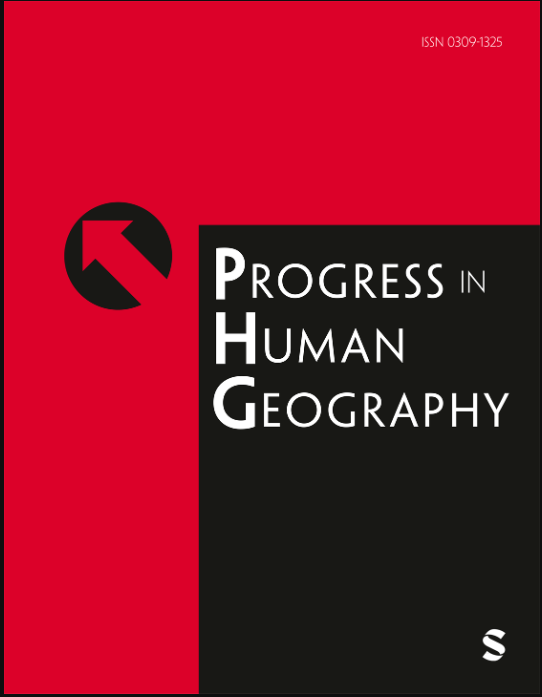Subjective destitution, love, and rebellion in pandemic times: Theorizing with Hot Skull
IF 6.1
1区 社会学
Q1 GEOGRAPHY
引用次数: 0
Abstract
Dystopian visions of global pandemics, political crises, and human suffering abound, from fictitious television shows to the ongoing ravages of COVID-19. When we witness isolated instances of suffering and collective struggle, and identify their relationship to large-scale social crises, we are unveiling pieces of the totality. Things which might otherwise be portrayed as a local problem are instead viewed as a part of a larger social system. The Turkish Netflix series Sıcak Kafa (English title: Hot Skull) offers a story of pandemic lockdowns, rebellion, love, and subjectivity, touching upon important issues of radical political theory and action. This article connects key moments in Hot Skull to several important Marxist and psychoanalytic concepts, showing how the collective struggles in this Netflix series can help us identify concrete instances and attempts at overcoming violence in the modern world-system. By comparing the events of Hot Skull to our current predicament of living through a deadly pandemic, this article reaches an important conclusion: Our ability to radically change our circumstances through chance encounters with love and political rebellion remains real, potent alternatives to living in a persistent state of isolation and despair.流行病时代的主观贫困、爱与反叛:以热骷髅为理论依据
从虚构的电视节目到持续不断的COVID-19肆虐,充斥着对全球流行病、政治危机和人类苦难的反乌托邦愿景。当我们目睹苦难和集体斗争的孤立事例,并确定它们与大规模社会危机的关系时,我们正在揭开整体的碎片。那些可能被描述为局部问题的事情被视为更大社会系统的一部分。土耳其Netflix电视剧Sıcak Kafa(英文名:Hot Skull)讲述了一个关于流行病封锁、叛乱、爱和主观性的故事,触及了激进政治理论和行动的重要问题。本文将《热骷髅》中的关键时刻与几个重要的马克思主义和精神分析概念联系起来,展示了这部Netflix电视剧中的集体斗争如何帮助我们识别现代世界体系中克服暴力的具体实例和尝试。通过将《热骷髅》中的事件与我们目前在一场致命的流行病中生活的困境进行比较,本文得出了一个重要的结论:我们通过偶遇爱情和政治反叛从根本上改变我们环境的能力仍然是真实的,是生活在持续孤立和绝望状态中的有效选择。
本文章由计算机程序翻译,如有差异,请以英文原文为准。
求助全文
约1分钟内获得全文
求助全文
来源期刊

Progress in Human Geography
GEOGRAPHY-
CiteScore
16.40
自引率
7.00%
发文量
56
期刊介绍:
Progress in Human Geography is the peer-review journal of choice for those wanting to know about the state of the art in all areas of research in the field of human geography - philosophical, theoretical, thematic, methodological or empirical. Concerned primarily with critical reviews of current research, PiHG enables a space for debate about questions, concepts and findings of formative influence in human geography.
 求助内容:
求助内容: 应助结果提醒方式:
应助结果提醒方式:


